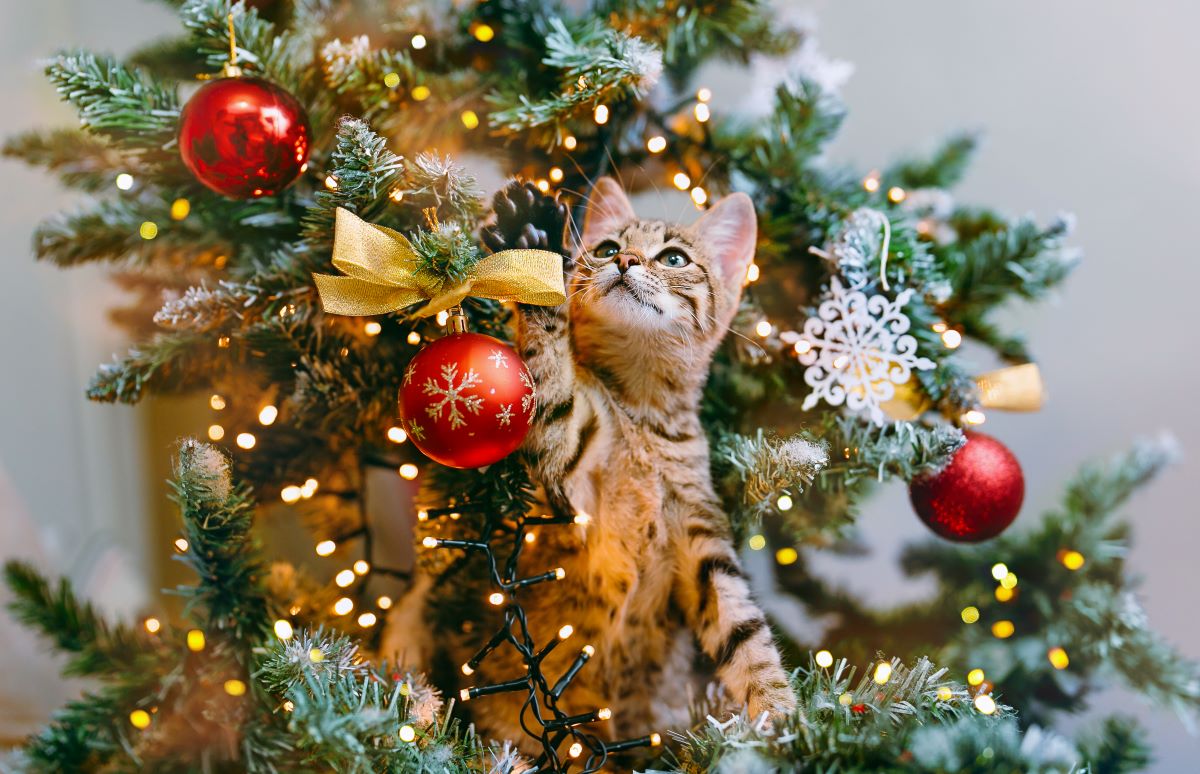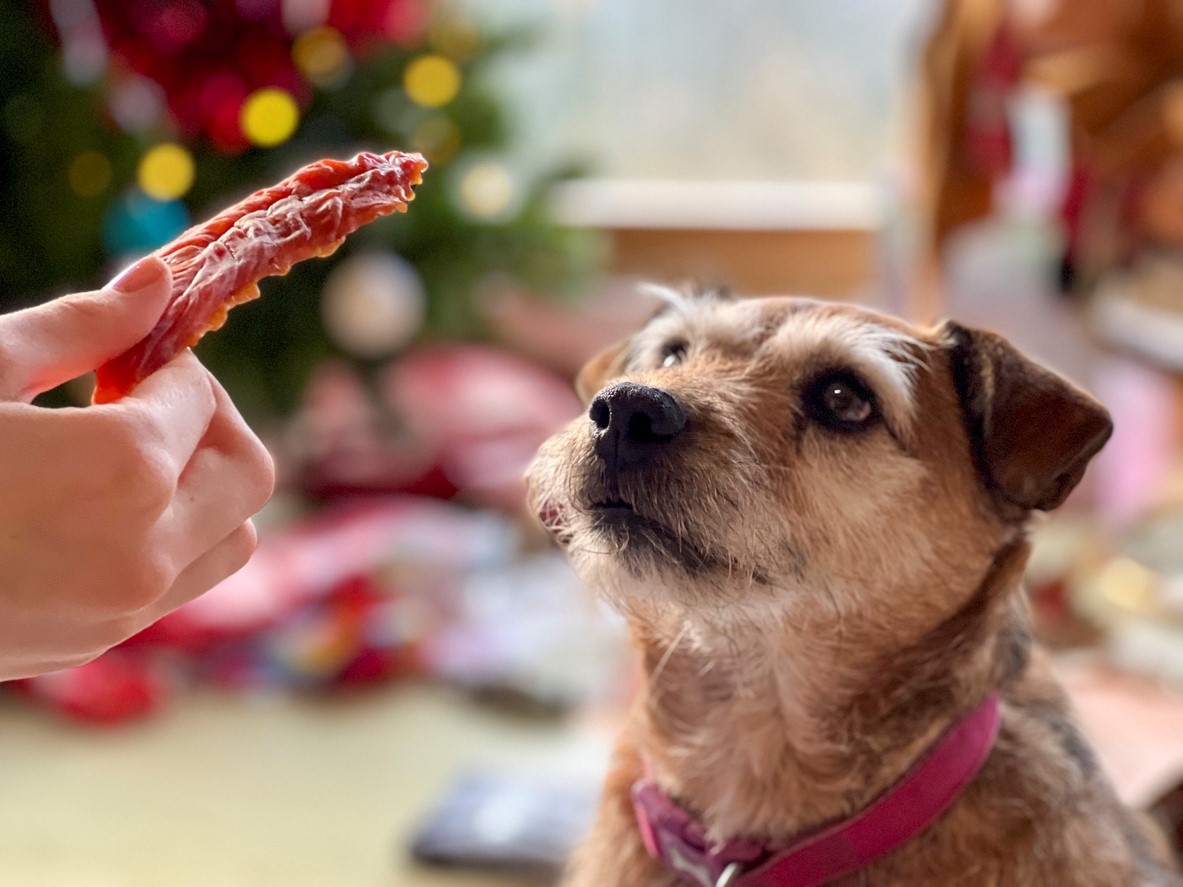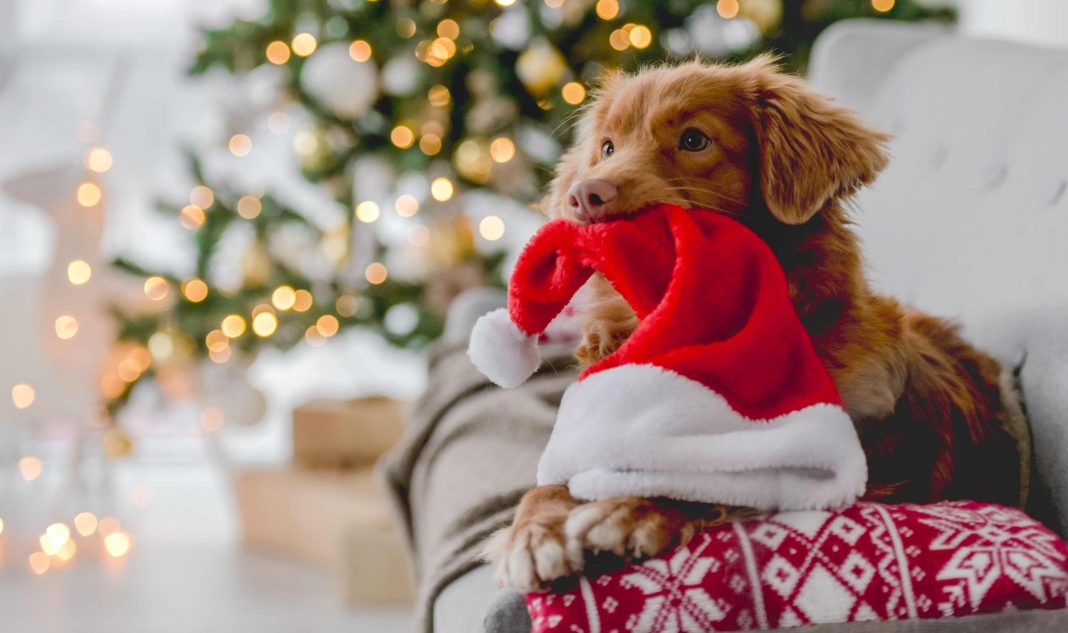When making a list and checking it twice, our fluffy, scaly, and feathered family members usually end up being nice. Unsure of what to give your pet this Christmas or whether they can join in the festivities? Michelle Roberston, CEO of RSPCA ACT shares her tips for celebrating the festive season with pets.
First and foremost, remember that pets are not surprise presents. Ms Robertson urges us to never gift an animal without first ensuring the recipient wants one, has a say in the selection, and is committed to owning a pet for its entire life.
“Pets are like family members and when you own one, please treat them like family,” she says.
Under the Christmas Tree

Just like us, our pets love a present and treat, and Ms Robertson encourages owners to spoil their pets if they can. Gifts don’t have to be expensive: for a cat, you can make a wand with string and a small toy or bell; for dogs, freeze some food in a toilet roll and pop it out on Christmas morning.
RSPCA ACT sells gifts including chew toys, licking pads and more. However, just being around their human/s is enough for most pets.
“The saying, ‘Your presence is present enough,” is true for your pets. If you’re having a lovely time and they get to be a part of that, they’ll be very happy,” Ms Robertson says.
After the gift exchange, it is important to clean up to avoid items like bows, plastic tape and ribbons being swallowed by a pet.
Family feasting

Ms Robertson operates under the motto ‘Caring is not sharing’ when it comes to Christmas foods; do not share food with pets just because you’re feeling festive and they’re working the puppy dog eyes.
“Dogs cannot metabolise foods the way humans do, and ham or turkey are extremely high in fat and potentially dangerous, particularly if your pet is overweight … Too much ham, turkey or other processed meats can lead to pancreatitis in pets.”
Understanding many of us may not have the willpower to say no to our pets, she says if we insist on feeding our dogs something from the Christmas spread, to make it a piece of boneless chicken.
“If ham is the only thing available, cut off any fatty pieces first and only give them a tiny amount.”
Other dangers at the Christmas table for pets include macadamia nuts, alcohol, avocado, lollies, chocolate, grapes, raisins, and cooked bones, as well as decorations, flowers, tinsel and plants.
Ms Robertson recommends exercising your pet before guests arrive so they will be less excitable and less likely to eat something they shouldn’t.
To support animals at the RSPCA ACT shelter this festive season, visit rspca-act.org.au



